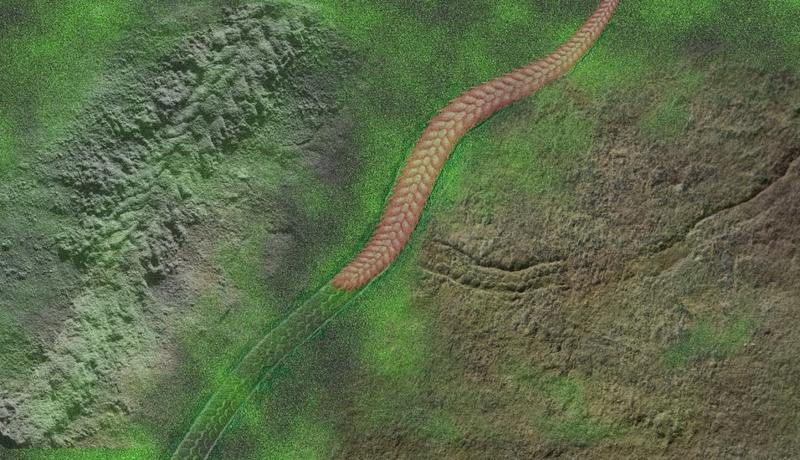Scientists discover 550 million-year-old bilaterian fossil in China

This Sept 4, 2019 shows an artist’s reconstruction of Yilingia spiciformis worm. AFP/SHUHAI XIAO / ZHE CHEN / VIRGINIA TECH UNIVERSITY via Jakarta Post/Asia News Network
NANJING, China — An international research team recently discovered a segmented bilaterian fossil about 550 million years old in China, which represents one of the oldest mobile and segmented animals.
The new fossil species, found in the Yangtze Gorges area, is named Yilingia spiciformis. It is directly connected with its trace produced immediately before its death, allowing the researchers to unravel critical evolutionary puzzles of the bilaterally symmetric animals, also known as bilaterians.
The research was published in the journal Nature last Thursday Beijing time by the team which consists of researchers from the Nanjing Institute of Geology and Palaeontology of the Chinese Academy of Sciences and Virginia Tech in the United States.
The origin of bilaterians with a segmented body is a monumental event in early animal evolution.
Although scientists have estimated on the basis of molecular clock analyses that mobile and segmented bilaterians existed in the Ediacaran Period (635-539 million years ago), there had previously been no convincing fossil evidence.
Article continues after this advertisementAs one of the few Ediacaran animals demonstrably capable of producing long and continuous trails, Yilingia spiciformis sheds new light on the puzzle, according to the team.
The origin of motile animals had a profound environmental and ecological impact, and ultimately led to the Cambrian substrate and agronomic revolutions.